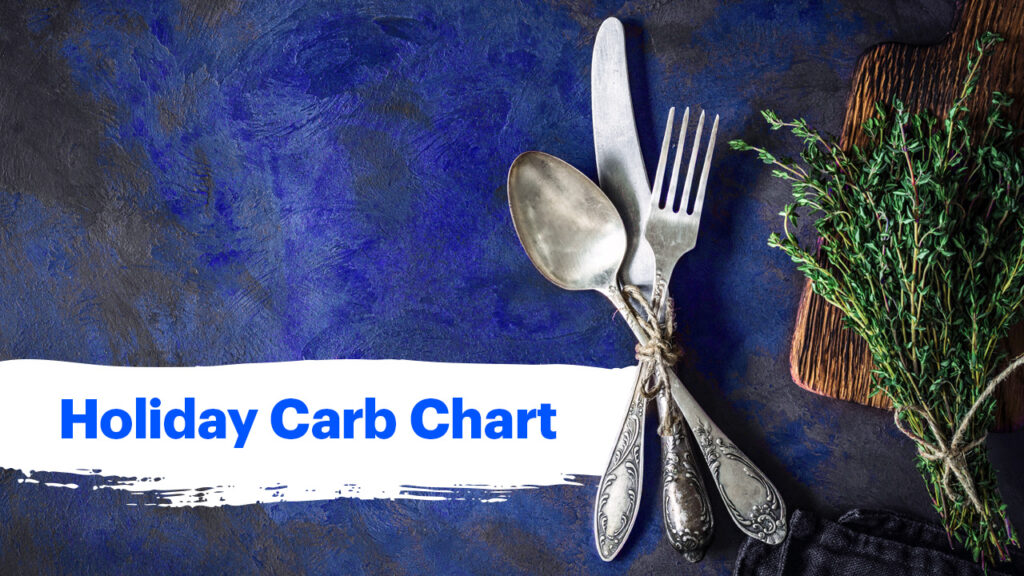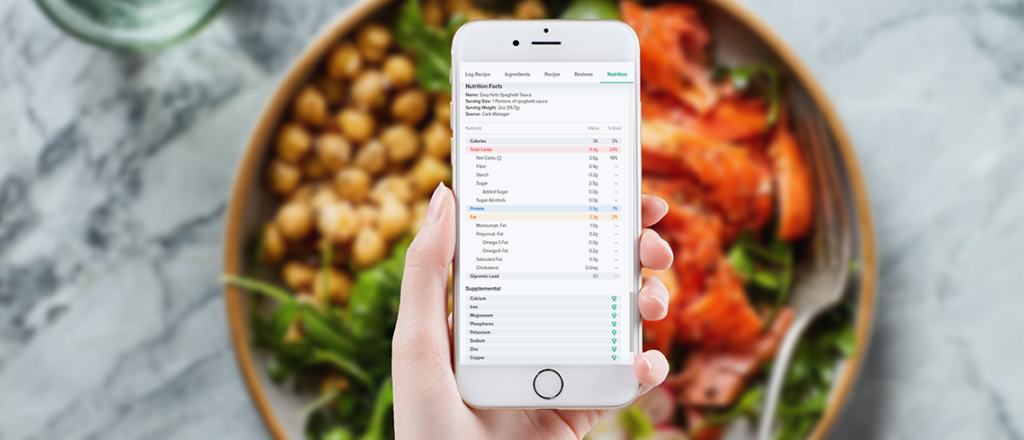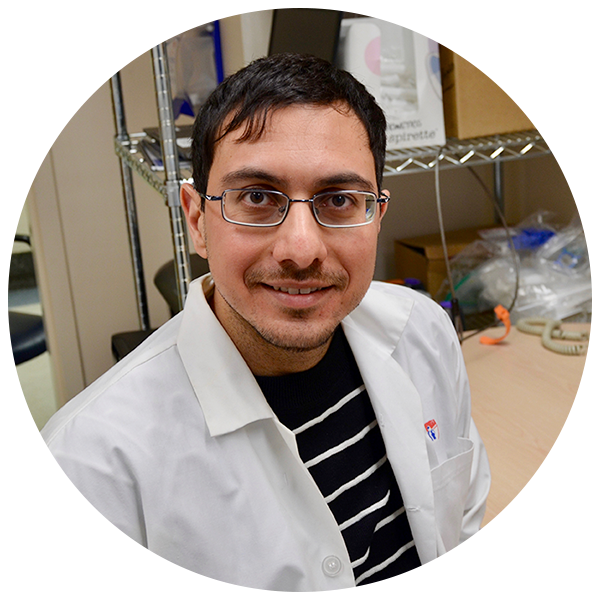
It’s the holiday season, and for most people that means indulging in seasonal treats and meals. It’s no different for people living with type 1 diabetes (T1D). One of the major stresses of managing T1D, particularly for people who are newly diagnosed can be meal planning, and both how it will affect blood glucose levels and how much insulin you might need.
But with a little planning and preparation, you can and should enjoy time with family and friends – including holiday dinners – with confidence.
Thank you to Beyond Type 1 for these traditional holiday meal carb counts to help guide your decisions this holiday season.
* Please note that your portion sizes may vary, and your carbohydrate counts will need to be adjusted accordingly.
Mains
| Item | Amount | Carbohydrates |
|---|---|---|
| Turkey | Any | 0g |
| Ham | Any | 0g |
| Beef | Any | 0g |
| Chicken | Any | 0g |
| Duck | Any | 0g |
| Goose | Any | 0g |
| Lasagna | 1 Cup | 30g |
| Brisket | 1 oz. | 0g |
Sides
| Item | Amount | Carbohydrates |
|---|---|---|
| Mashed Potatoes | 1 cup | 30g |
| Roasted Potatoes | 1 cup | 28g |
| Sweet Potato | 1 Med. | 28g |
| Potato Latke | 1 Med. | 10g |
| Candied Yams | 1/2 cup | 45g |
| Sweet Potato Casserole with Mini Marshmallows | 1/3 cup | 30g |
| Green Beans | 1/2 cup | 4g |
| Green Bean Casserole | 1 1/2 cup. | 9g |
| Corn | 1/2 cup | 9g |
| Sauerkraut | 1 cup | 6g |
| Glazed Carrots | 1/2 cup | 25g |
| Brussel Sprouts | 1/2 cup | 4g |
| Cheese | 1 oz. | 0-1g |
| Stuffing | 1/2 cup | 20g |
| Cranberry Sauce | 1/4 cup | 25g |
| Gravy | 1/2 cup | 5g |
| Dinner Roll | 1 | 20g |
| Biscuit | 1 | 25g |
| Cornbread | 1 piece | 28g |
| Challah | 2 oz. | 30g |
| Matzo Ball | 1 | 10g |
| Matzo Ball Soup | 1 cup | 15g |
| Noodle Kugel | 2″ Square | 23g |
| Apple Sauce – Sweetened | 4 oz. | 23g |
| Apple Sauce – Unsweetened | 4 oz. | 12g |
| Sour Cream | 2 tbsp. | .5g |
| Olive Oil | 1 tbsp. | 0g |
Desserts
| Item | Amount | Carbohydrates |
|---|---|---|
| Sweet Potato Pie | 1/8th Slice | 35g |
| Minced Meat Pie | 1/8th Slice | 55g |
| Pumpkin Pie | 1/8th Slice | 35g |
| Apple Pie | 1/8th Slice | 45g |
| Pecan Pie | 1/8th Slice | 60g |
| Meringue Pie | 1/8th Slice | 50g |
| Fruitcake | 1/8th Slice | 26g |
| Christmas (Plum) Pudding | 2 oz. | 30g |
| Sticky Toffee Pudding | 2 oz. | 25g |
| Bread Pudding | 2 oz. | 20g |
| Trifle | 1 2 oz. | 15g |
| Ginger Snap Cookies | 4 (1 oz.) | 23g |
| Shortbread Cookies | 4 (1 oz.) | 21g |
| Chocolate Chip Cookies | 2 | 20g |
| Peanut Butter Cookies | 2 | 20g |
| Sugar Cookies | 2 | 22g |
| Meringue Cookies | 6 | 15g |
| Rugelach | 1 oz./pc. | 17g |
| Sufganiyot (Jelly Donut) | 1 | 25g |
| Cheese Blintz | 1 | 12g |
| Chocolate Gelt | 1 oz. | 17g |
| Cheesecake | 1 pc. (1/6) | 20g |
| Candy Cane | 1 | 15g |
| Vanilla Ice Cream | 1/2 cup | 16g |
| Chocolate Ice Cream | 1/2 cup | 18g |
| Brand Butter | 2 tbsp. | 15g |
| Whipped Cream (Unsweetened) | 2 tbsp. | 2g |
Drinks
| Item | Amount | Carbohydrates |
|---|---|---|
| Eggnog | 1/2 cup | 30g |
| Hot Cocoa with Water | 1 cup | 15-20g |
| Hot Cocoa with Milk | 1 cup | 30g |
| Spiced Apple Cider (Non-Alcoholic) | 1 cup | 30g |
| Hard Apple Cider | 12 oz. | 15-30g |
| Wine (White or Red) | 5 oz. | 4g |
| Champagne | 5 oz. | 3g |
| Regular Beer | 5 oz. | 12g |
| Light Beer | 12 oz. | 6g |
| Spirits | 1 oz. | 0g |

